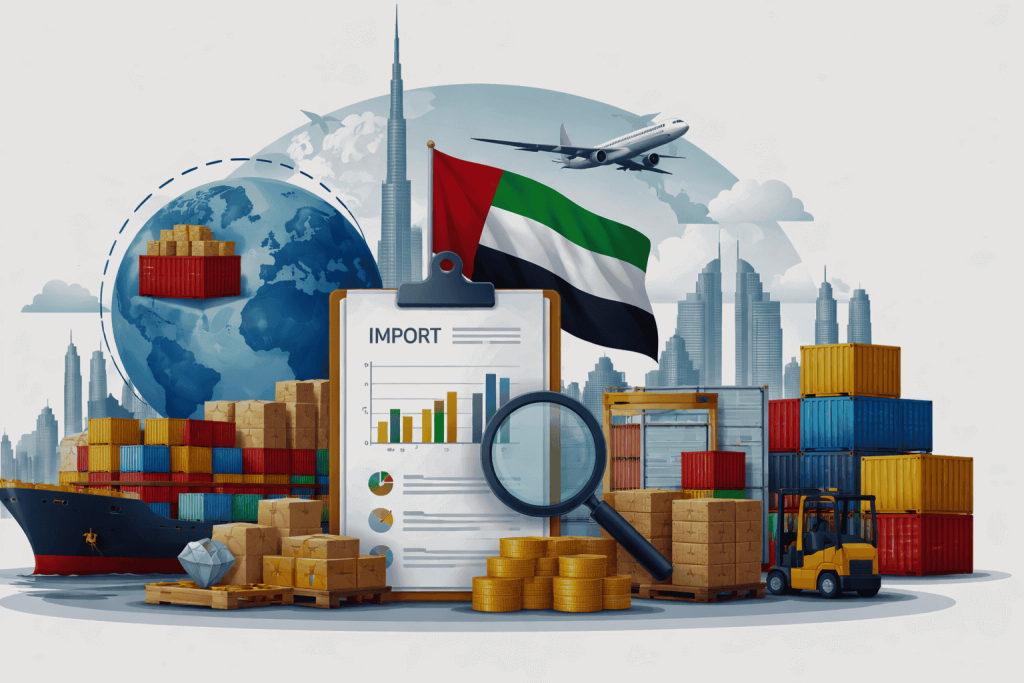Introduction to Artificial Meat
Artificial meat, commonly referred to as alternative protein, encompasses a variety of meat products that are produced without the traditional means of animal agriculture.
This innovative food category is primarily divided into two distinct types: plant-based meat and lab-grown meat.
Plant-based meat substitutes replicate the taste and texture of animal protein using ingredients derived from plants, while lab-grown meat is cultivated from animal cells in a controlled environment, minimizing the need for livestock farming.
The inception of artificial meat traces back several decades, with the initial conceptualization occurring in the late 20th century.
However, it wasn’t until the early 21st century that significant strides in technology and consumer awareness began to facilitate its development and acceptance.
The drive behind artificial meat stems from various factors including environmental concerns, health implications, and ethical considerations surrounding animal welfare.
The production of plant-based meat, in particular, has gained substantial momentum, leading to a diverse assortment of products that appeal to a broad consumer base spanning vegetarians, vegans, and even omnivores.
In recent years, the relevance of artificial meat within the global food industry has surged dramatically.
Research indicates that the demand for sustainable food sources is steadily increasing, with consumers showing a preference for products that yield lower carbon footprints and utilize fewer natural resources compared to conventional meat.
As nations consider incorporating plant-based meat exports into their trade agendas, the potential economic implications become evident.
Markets around the world are gradually adapting to the transformative potential of alternative protein sources, paving the way for innovative trade practices and new market dynamics.
The Shift in Consumer Preferences
In recent years, consumer preferences have undergone a significant transformation, particularly with regard to food choices. This shift is prominently observed in the increased interest in plant-based meats and lab-grown alternatives.
Factors such as health consciousness, environmental concerns, and ethical considerations are pivotal in driving this movement.
More consumers are now prioritizing health and nutrition over traditional meat sources, largely due to the rising awareness concerning the health risks associated with excessive meat consumption, such as heart disease and obesity.
Environmental sustainability also plays a crucial role in shaping consumer attitudes.
The production of conventional meat is associated with substantial greenhouse gas emissions, deforestation, and water use.
In contrast, plant-based meat exports offer a more sustainable option, appealing to environmentally conscious consumers.
These alternatives typically require fewer resources and result in a smaller carbon footprint, aligning with the values of individuals who are increasingly aware of their ecological impact.
Ethical concerns regarding animal welfare have further influenced consumer choices, particularly among younger demographics.
Many millennials and Generation Z consumers advocate for humane treatment of animals, leading to a rising popularity of plant-based foods and lab-grown meat alternatives.
This new trend reflects a broader societal shift that underscores the importance of ethics in food production, prompting a reevaluation of traditional meat consumption.
The demographic trends indicate that younger consumers are not just passive followers, but active participants in shaping market dynamics.
Their preference for plant-based options over conventional meat signifies a new frontier in the import and export trade of food products.
As the demand for plant-based meat exports continues to escalate, it is clear that the landscape of food consumption is evolving, ultimately prompting both producers and policymakers to revisit traditional practices in favor of sustainable, ethical, and health-conscious alternatives.
Current Trends in the Artificial Meat Industry
The artificial meat industry has witnessed remarkable growth, driven by technological advancements and shifting consumer preferences towards plant-based alternatives.
As the demand for sustainable and ethically produced food options increases, the sector has evolved, giving rise to innovative manufacturing techniques and products.
Notably, the integration of bioprinting and fermentation technologies has facilitated the creation of artificial meats that closely mimic the flavor and texture of traditional meats.
Current market statistics underscore this trend. The plant-based meat exports market is projected to grow substantially in the coming years, with estimates indicating a compound annual growth rate (CAGR) of 15-20%.
This growth can be attributed to a surge in health-conscious consumers as well as heightened awareness regarding the environmental impact of animal farming.
Market leaders such as Beyond Meat and Impossible Foods have innovatively positioned their products, capturing significant market shares and broadening the scope of plant-based meat offerings.
Moreover, consumer preferences are evolving toward more diverse and refined flavors that cater to various culinary traditions.
The introduction of new products such as plant-based seafood and alternative protein sources, including insect-based options, exemplifies the industry’s rapid advancement in appealing to broader consumer tastes.
Companies are increasingly investing in research and development to explore novel ingredients and production methods that enhance the sensory qualities of artificial meats, thus improving the overall eating experience.
Furthermore, the rise of flexitarian diets—where consumers adopt plant-based foods while still incorporating some animal products—has driven the popularity of artificial meats.
This trend supports a wider acceptance of plant-based meat exports, making them more accessible to mainstream consumers globally.
As the industry continues to adapt and evolve, it establishes itself not only as a viable alternative to conventional meats but also as a crucial player in the future of global food systems.
Impact on Traditional Meat Industries
The emergence of artificial meat, particularly in the form of plant-based meat exports, has introduced significant changes within the traditional meat industries globally.
Livestock farming faces considerable disruption as consumers increasingly consider alternatives to conventional meat.
The shift towards artificial meat appeals to environmental concerns, animal welfare issues, and health considerations, thereby altering consumer preferences.
As a result, traditional livestock producers are beginning to reassess their operating models and market strategies.
Recent studies indicate that the introduction of plant-based alternatives may result in decreased demand for traditional meat products.
This has led to fluctuations in livestock prices, as farmers grapple with oversupply issues and a changing marketplace.
Additionally, meat processing facilities are reevaluating their production lines to accommodate the rise in demand for artificial meats, which may necessitate substantial investments in new technology and machinery.
The traditional meat distribution channels are also witnessing adaptations, as retailers incorporate plant-based options alongside conventional products to cater to the evolving consumer base.
Moreover, the regulatory framework surrounding both traditional and artificial meats is evolving.
Regulatory bodies are under pressure to implement clear guidelines and standards to ensure the safety and nutritional value of plant-based meat exports.
Traditional meat producers may advocate for a regulatory environment that ensures their products remain competitive, following claims that artificial meats lack the same nutritional profile as traditional options.
However, this has resulted in a dialogue about fair labeling and marketing practices, further complicating the landscape of meat production and sales.
In this context, traditional meat industries are exploring diversification strategies to incorporate plant-based offerings into their product lines.
This adaptation could potentially allow them to maintain relevance amid the growing popularity of artificial meats while ensuring consumer satisfaction. Balancing these shifts will be crucial as both sectors navigate the future of meat consumption.
Global Trade Implications
The rise of artificial meat, particularly in the form of plant-based meat exports, presents significant implications for global trade.
As consumer demand for sustainable and ethical food sources increases, countries that produce artificial meat are positioned to capture emerging market opportunities while reshaping existing import and export dynamics.
The growing popularity of plant-based alternatives drives countries to innovate and expand their capabilities in this sector, leading to the formation of potential new trade routes that prioritize sustainability and ethical standards.
Countries with established agricultural systems and strong research institutions are uniquely situated to become leading players in the plant-based meat industry.
Nations such as the United States, Canada, and several European countries have begun to make strides in this area, developing products that not only meet domestic needs but also appeal to international markets.
By prioritizing the export of plant-based meats, these nations can enhance their trade balances, creating new revenue streams while also fulfilling the global demand for sustainable proteins.
However, entering the global markets with artificial meat products presents its own challenges. Regulatory barriers, such as safety standards and labeling requirements, may complicate plant-based meat exports.
Producers must navigate varying regulations across countries, which can deter some manufacturers from fully engaging in international trade.
Furthermore, the competition from traditional meat exporters is significant, requiring artificial meat producers to not only promote their products effectively but also to educate consumers on the benefits of plant-based options.
In summary, the implications for global trade stemming from the rise of artificial meat are profound.
While there are significant opportunities for countries to expand their plant-based meat exports, they must also confront several challenges to successfully integrate into the global marketplace.
The balance between opportunity and challenge will be key to the future dynamics of international trade in this innovative sector.
Sustainability and Environmental Benefits
The growing interest in artificial meat, particularly plant-based meat exports, is closely tied to its sustainability advantages compared to conventional meat production.
Traditional livestock farming is notorious for its significant environmental impact, including greenhouse gas emissions, excessive land use, and substantial water consumption.
In contrast, the production of plant-based meat is generally more efficient and environmentally friendly.
One of the primary environmental benefits of plant-based meat is its substantially lower greenhouse gas emissions.
Livestock farming contributes approximately 14.5% of global greenhouse gases, primarily methane, which is released during digestion. Studies have shown that plant-based meat alternatives can reduce these emissions by up to 90%.
As global awareness of climate change rises, many international markets are inclined towards sourcing products that can minimize their carbon footprints, thus enhancing the appeal of plant-based meat exports.
Additionally, the production of artificial meat requires considerably less water than traditional meat. Estimates suggest that it takes around 1,800 gallons of water to produce just one pound of beef.
In comparison, plant-based alternatives demand a fraction of that, often utilizing less than 300 gallons.
Reducing water usage is particularly critical in many regions facing water scarcity, making plant-based meat an attractive option in these markets.
Land requirements further exemplify the environmental benefits of plant-based meat.
Conventional meat production necessitates vast areas for grazing and growing feed crops, leading to deforestation and habitat loss.
Conversely, plant-based meat can be cultivated on significantly reduced land. This efficiency not only preserves natural ecosystems but also opens avenues for more sustainable agricultural practices.

In conclusion, the sustainability of artificial meat, particularly through plant-based meat exports, positions it as a favorable option in the global food market.
Its lower greenhouse gas emissions, reduced water usage, and decreased land demand align well with the increasing preference for environmentally responsible products worldwide.
Regulatory Landscape for Artificial Meat
The regulatory landscape surrounding artificial meat is multifaceted and varies significantly across countries.
As artificial meat, often referred to as cultured or lab-grown meat, gains traction in the global market, nations are working to establish frameworks that ensure food safety, quality, and consumer trust.
Key players in this domain typically include government agencies and regulatory bodies that are responsible for scrutinizing food products before they enter the market.
For instance, in the United States, the Food and Drug Administration (FDA) and the Department of Agriculture (USDA) share jurisdiction over the regulation of artificial meat.
Similarly, the European Food Safety Authority (EFSA) plays a paramount role in Europe, focusing on assessing safety and approving novel food products.
The approval process for artificial meat is rigorous, often requiring extensive scientific research and safety evaluations.
Companies looking to launch plant-based or lab-grown meat products must present data demonstrating their products’ safety and nutritional value.
This process can be lengthy, with potential delays impacting the market entry timeline, affecting both domestic sales and plant-based meat exports.
Various countries have different criteria for regulatory approval which can further complicate international trade, as each jurisdiction may impose its own safety standards and labeling requirements.
As a result, manufacturers must be versatile in navigating these regulatory waters to successfully penetrate diverse markets.
Moreover, collaborative efforts are increasingly necessary, with international organizations advocating for harmonized standards in the growing sector of artificial meat.
Establishing global standards could expedite the approval process and facilitate smooth plant-based meat exports worldwide.
As consumer interest in sustainability and ethical food sources rises, the ongoing evolution of regulations for artificial meat will be critical in shaping its market dynamics, directly influencing both production and trade efficiency in this burgeoning industry.
Challenges Facing the Artificial Meat Trade
The artificial meat industry, characterized by plant-based meat exports and lab-grown alternatives, is experiencing rapid growth; however, it also encounters several significant challenges. One of the most pressing issues is consumer acceptance.
Many individuals remain skeptical of artificial meat products, questioning their nutritional value, taste, and overall safety.
This reluctance can be attributed to a lack of familiarity with plant-based proteins and a strong preference for traditional meat products.
For the artificial meat trade to flourish, it will be essential to educate consumers and dispel common misconceptions about these alternatives.
Another challenge that the industry faces is scalability. While production processes for artificial meat have improved, scaling manufacturing to meet growing demand presents logistical hurdles.
Plant-based meat exports must ensure they can produce sufficient quantities without compromising quality.
This requirement necessitates investment in advanced technologies and facilities, which can be a significant barrier for smaller companies entering the market.
Moreover, technological barriers pose another obstacle to the artificial meat trade. The production of lab-grown meat involves complex biotechnological methods that are still in developmental stages.
Companies must continually innovate to develop cost-effective and efficient production techniques.
These technological advancements not only influence market prices but also impact the overall viability of the domestic and international trades.
Lastly, regulatory hurdles need to be addressed.
Different countries have various standards and regulations concerning food safety and labeling, which can complicate trade and lead to inconsistencies in the market.
Harmonizing these regulations while ensuring consumer safety is crucial for the successful expansion of plant-based meat exports globally.
Overall, overcoming these challenges will require collaboration among producers, governments, and consumers, ensuring the sustainable growth of the artificial meat trade in both domestic and international markets.
Future Outlook for Artificial Meat in Global Trade
The global market for artificial meat, encompassing both lab-grown and plant-based alternatives, is poised for substantial growth in the coming years.
According to various market studies, the plant-based meat sector is expected to witness a compound annual growth rate (CAGR) of over 15% from 2023 to 2030.
With increasing consumer awareness regarding health, sustainability, and animal welfare, demand for plant-based meat exports is anticipated to rise significantly.
This shift presents both challenges and opportunities for manufacturers and exporters in the food trade.
In terms of industry collaboration, partnerships among food technology companies, agricultural producers, and distribution networks are likely to become integral in enhancing the efficiency and reach of plant-based meat exports.
For instance, strategic alliances could facilitate shared research and development initiatives, thereby accelerating the innovation of sustainable production methods.
Moreover, collaborations with culinary experts may help in refining the taste and texture of artificial meat products, which is crucial for broader consumer acceptance.
Innovations in food technology, such as advancements in cellular agriculture and bio-based processing techniques, are also expected to play a critical role in shaping the future of artificial meat.
These technologies could not only improve the overall quality of plant-based meats but also reduce production costs, making exports more competitive on a global scale.
Additionally, as countries recognize the environmental impacts of conventional meat production, geopolitical factors will influence regulations and tariffs surrounding plant-based meat exports, potentially leading to more favorable trade agreements.
In conclusion, the future trajectory of artificial meat in global trade is marked by predicted rapid growth, collaborative initiatives, and technological advancements.
As consumer preferences evolve and geopolitical dynamics shift, the landscape for plant-based meat exports will likely transform, presenting various avenues for industry players to explore and expand their market presence.






No comment yet, add your voice below!